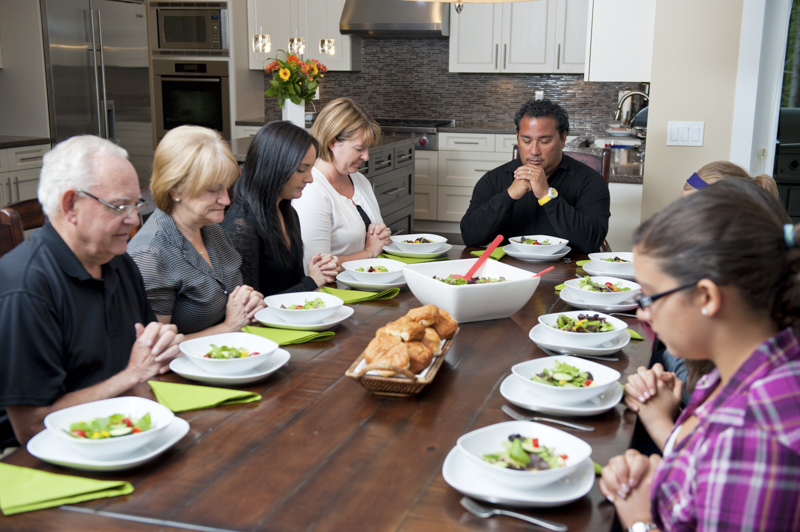by Guest Blogger | Nov 2, 2017 | Guest Posts, Marriage

“I could barely function. My home quickly became a disaster. Dirty dishes were stacked in my sink for days while the cockroaches multiplied. I couldn’t sleep. I had no appetite and lost over five pounds in my second trimester of pregnancy. I threw my toddler in front of the TV for more hours than I would like to admit. … The first month after his disclosure we ate fast food almost every night and the second month we ate frozen food. …Anytime I talked to friends I would think, If only you knew what my life was really like. On the outside it seemed like I had everything together, but I felt like my life was falling apart.”
Discovering Pornography Addiction
The discovery of your spouse’s pornography addiction will cause a variety of mental, emotional and physical responses. From anxiety, depression, and overwhelming doubts and fears; to feelings of undesirability, decreased self-worth, migraines, fatigue, nausea, and cold sweats, the response is as varied as the spouses who experience it.
Research shows that pornography addiction is viewed as infidelity, and is often described by the spouse or partner as “betrayal,” “cheating,” or an “affair.” Just because your spouse hasn’t been with someone else physically, it doesn’t hurt any less. In fact, it’s still called betrayal trauma.
According to the book Love and Betrayal: Stories of Hope, betrayal trauma “refers to the damage that is caused when someone experiences a betrayal in their primary relationship that damages the trust, safety and security of the bond they have with their partner,” and is truly trauma in every sense of the word.
Clearly, the disruption this event causes in your life can have no other description than trauma. And just as any other traumatic event, it leaves wounded people behind, in need of care and attention. When it is your spouse’s pornography addiction, you are the wounded. Because of this, you need to experience your own healing too!
With that in mind, and while there isn’t a one-size-fits-all remedy, here are a few points that will assist you as you seek additional help in this journey.
1. It’s Not Your Fault
The most important thing to realize is that the addiction of your spouse is not your fault. There isn’t a thing that could be further from the truth! The guilt-trip-go-around will not fix your spouse, it will not help you heal, and it will only make your personal suffering worse.
Wondering where you went wrong or blaming yourself for not being enough will only make you lose more sleep at night. Instead please, please know it is not your fault, and dismiss that dialogue from your head.
2. Time and Space to Grieve
While it isn’t your fault, you are not immune from the effects of your spouse’s addiction. Naturally, your spouse’s disclosure may leave you feeling unsafe and vulnerable. Because of this, you likely need time and space to grieve.
Creating space can help you find feelings of safety and deal with what you’ve just been told. This may include a literal separation from your spouse for a time, be it sleeping in different rooms, staying in different living places, or simply spending time away from each other. During this time, avoid making major decisions about whether or not you and your spouse should permanently stay together. The point is to give yourself time and space to deal with the new information and cope with your changing relationship.
3. Practice Self-Care
After the disclosure of addiction, it feels like your world has been shattered. Getting up in the morning feels impossible, and easy tasks now require incredible effort. While you may take a few days off from work, or have the kids stay with grandma for a time, you can’t check out of life forever.
You need to find healing yourself, and part of getting better is practicing self-care. Self-care constitutes the things you do for your mental, physical, spiritual and emotional health to feel well. Even if you can only do one thing, like go for a daily walk, do it!
Other ideas for self-care include reading a favorite book, taking a nap, eating healthy foods, exercise, having a hot bath, listening to relaxing music, etc. The point of this is to begin healing you by focusing on you. Practicing self-care will help you to take care of you and what you need so that you can cope with the issue at hand.
4. Find Your Support Team
Though this is your personal healing journey you are on, you shouldn’t undertake it simply on your own. You need support! While there may be a member of your family or a good friend that is willing to listen and offer support, this may not be sufficient. Support groups for spouses can be an invaluable resource for you. Also, finding a credible therapist, coach or peer specialist will help you work through your experience and help you develop new skills to help you thrive.
Please note, whether your additional help be through a counselor, coach, peer specialist, therapist and/or support group, you should seek professional help.
The Healing Journey
The journey through discovery, disclosure, betrayal and trauma is not an easy road. Nor is it a road for just your spouse to walk. You too need to work through and heal from the aftermath of a pornography addiction: the lying, broken promises, shattered expectations, emotional loss. You are worth every investment you make on yourself, and you need healing as much as your spouse does.
*Sarah’s story is told in the book Love and Betrayal: Stories of Hope. While this is her story, it represents many other spouses with similar experiences.
Katherine Wahlen is a marriage and family studies major at Brigham Young University – Idaho. She currently works for a company called Change My Heart that helps with addiction recovery for individuals and their spouses. Katherine is also developing a research-based curriculum for husbands and wives to find support and recovery through their spouse’s pornography addiction.
by Guest Blogger | Jun 21, 2016 | Advocacy, Guest Posts, Parenting

Guest Writer: Dina Alexander, founder of Educate Empower Kids
Almost three years ago I had my first “porn talk” with my kids. This came about after reading a simple article about teens and their ever increasing access and inevitable use of pornography. As I read, I became frustrated, then scared and finally determined. I knew I had to educate my kids immediately about this danger, as well as every parent I came in contact with.
I didn’t have all the answers that first day, but it didn’t matter. I opened the door to a new dimension in my relationships with my three kids. A dimension that brought a closeness and unity to our family that was not there before.
Just days after this first talk, I began doing serious research into the devastating effects of porn consumption by children. I read, I dug, I pondered, I planned and within a few months I had created a non-profit organization. An organization that focuses on teaching parents how to create deep connections with their kids and start some pretty challenging conversations about the dangers of pornography, and its opposite, healthy sexuality.
In those first few months of researching, organizing and layering conversations with my kids, I had a tremendous worry. Was I “giving my kids ideas” (or creating an unhealthy curiosity that was not there before)?
The answer became apparent. Yes! I was “giving them ideas.”
And I want you to give your children the same ideas.
Give your kids the idea that you are a great source of reliable, honest information. Let them know through your words and actions that you can speak calmly, comfortably and rationally about human issues that affect all of us, namely, curiosity and sexuality. As you initiate discussions about these topics and pornography, share your personal experiences, spiritual values and expectations kindly and thoughtfully, your child will soon get the idea that his parents are human and make mistakes. They will also see that you are ready to talk about “tough” topics and more importantly, listen to them. I promise you as you answer your kids questions openly and sincerely and they will come back to you for your wisdom and empathy.
I also want you to give your kids the idea that there is nothing shameful or “awkward” in asking questions about and discussing one of the most amazing experiences available to human beings: true intimacy expressed through sexuality. By discussing the positive aspects of sex, you can help them know that sexual intimacy is good, beautiful and enjoyable. Follow this up with a discussion about healthy sexuality’s opposite: pornography. Take the time to explain how porn is the opposite of intimacy, can be addictive, can condition the brain, harm relationships and damage a person’s ability to relate and empathize with others.
Finally, if you continue these discussions at each stage of development, your child will get the idea that curiosity is a God-given gift. He will get the idea that his feelings and questions are normal and natural when you let him know that any question is okay and that you will not judge him harshly for asking ANYTHING.
So if you find yourself saying, “I don’t want to give them ideas.” My answer to you is “Yes! Yes you DO want to give them ideas!” By tackling these crucial topics, you and your child will grow closer together and she will know that she can rely on you to provide helpful information in a loving manner. Here are some topics to guide your conversations:
What Does a Younger Child Need to Know About Sexual Intimacy?
- Protective Information (my body belongs to me, good touch/bad touch, how to say “no”)
- Bodily Knowledge (anatomy, functions of anatomy, where do babies come from)
- Relationship Basics (self-respect, respect for others, romantic love vs. friendships)
- Media Savvy (healthy and unhealthy media messages, body image)
- *When your child is ready, discuss the mechanics of sex
What Does a Younger Child Need to Know About Pornography?
- What it is (define it)
- Where it exists (smartphones, tablets, computers, etc.)
- What to do when you see porn (Name it, Get away from it, Tell parents, Discuss feelings with seeing it, Deconstruct the images seen, How to prevent further exposure)
- Why it should be avoided
What Does an Older Child/Teen Need to Know About Sexual Intimacy?
- Sex is healthy and amazing
- Intimacy (connecting with another human being) should be the focus
- Positive and negative aspects of sex
- Protective Information (consent, how predators groom kids/teens)
- Bodily Knowledge (puberty, body image, masturbation, mechanics of sex)
- Relationship Advice (self-worth, boundaries, healthy vs. abusive relationships)
- Media Savvy (healthy/unhealthy media messages, sexting, social media)
What Does an Older Child/Teen Need to Know About Pornography?
- There is an industry targeting him/her
- It is addictiveIt destroys relationships
- It is damaging to society
- There is a way back from a porn habit/addiction
For more helpful information, conversation starters and great discussion questions for you and your kids, please check out How to Talk to Your Kids About Pornography, 30 Days of Sex Talks, Empowering Your Child with Knowledge of Sexual Intimacy or 30 Days to a Stronger Child available on Amazon (LINK: http://amzn.to/1TEMnUr)
by Guest Blogger | Feb 17, 2016 | Guest Posts, Parenting

By Cami Sullivan
My years as a single mom taught me how to strengthen my family and become a better mother.
When I left my husband 8 years ago, I was an emotional train wreck. My very young daughter was clueless as to what was happening, but she knew things had changed and she didn’t like it. It was a dark and scary time for us. I clung to the Lord, and He led me every step of the way. I learned how to create a strong family amidst the rough battle of divorce.
There were, surprisingly, a few perks to my new reality; it was a relief not to worry about dividing my attention between my spouse and my child, and being able to make all the decisions without having to compromise was a huge plus!
If you find yourself in a similar situation, I hope you will find use of these 6 ways to ensure a strong family as a single parent:
1. Speak kindly of your ex.
I could write novels about all the terrible things my ex did during the course of our marriage and fill bookcases more of all that has transpired since then. But as far as my daughter knows, her dad is an angel. She adores her dad, and I’m thrilled that she feels that way. No one wants to hear that someone they love has done something wrong. Your children should not know what caused the separation. They should not know when your ex does or says something mean. It is your responsibility to protect them from the pain and disappointment. If you need to vent, write in your journal or call a friend when you are certain the kids can’t hear your conversation. This step is vital!
2. Schedule time together daily.
Show your children that they are a priority by spending time with them daily. Help them with homework, play a game, watch a favorite tv show. What’s most important about this time is that it’s free of distractions (especially phones and tablets), and that you are doing what your children want to do, not what you want to do. Take an interest in their interests, learn what makes them annoyed and what thrills them. Do this consistently and without a hidden agenda. Soon, they will trust you enough to tell you the things that they fear, things that they are tempted by, and their innermost hopes and dreams.
3. Continue routines.
As much as possible and as is appropriate for your family, continue the routines your children were used to. Like you, they have been through much change and need some consistency. Routine can feel like a safety net for children. If you have always read a bedtime story to your children, keep reading! If every Friday you order pizza, don’t stop now! It will be wonderful for you all to have something familiar during an unfamiliar circumstance.
4. Start new traditions.
While it’s important to maintain normalcy, it’s also important to start some new traditions as you form a new identity as a family. This can be a great discussion you have with your children- maybe each of you could choose 1 new tradition to start. Keep in mind that your visitation likely does not allow you to see the children each holiday, so you may need to celebrate Christmas a day early or Valentines a day late. My daughter told me the best part about having divorced parents is getting to have Santa visit her twice!
5. Make rules clear and consistent.
It is so difficult for children to go back and forth from Mom’s house to Dad’s house with new rules and guidelines at each place. Something you can do to ease their burden is to be very clear about what you will and will not allow while they are in your home. When is bedtime? How much TV is allowed each day? Be clear about consequences, and always follow through. Your children need boundaries, now more than ever.
6. Be strong and optimistic about the future.
If you are constantly negative about your circumstance and expressing worry for what’s to come, you are saying to your children that life is miserable and it probably won’t get better. It is alright to be upset, sad, and worried. But it is not alright to be transparent with your children about those feelings. Be the pillar of strength they can cling to when their world tosses them around.
Raising children alone is difficult, and sometimes feels impossible. But by following these steps you can increase the likelihood of happiness within your family!
© 2016, all rights reserved. Permission to share this article is granted as long as all bio and contact information is included.
Cami is a Support Coach who helps divorced Christian women find confidence, independence, and joy. Learn more here:
www.aplanforhappiness.org
by Guest Blogger | Jul 21, 2015 | Guest Posts

By Camille Beckstrand, guest writer from SixSistersStuff.com
When I was growing up, family dinner happened every night at 6 pm. In spite of crazy schedules with sports, dance, gymnastics,and school activities, we knew that our mom would have dinner on the table every night at that time. During our meal, we were not allowed to take any phone calls – dinner was a time spent together to talk and eat.
During family dinner, we would discuss the happenings of each day and to talk about the things that were going on in our lives. It was a time to laugh and share funny stories and a time to talk about serious current events. Many of my favorite memories happened around the dinner table and helped shape me into the person that I am today.
When my sisters and I started our blog SixSistersStuff.com, we shared many of our favorite family recipes and we soon realized that one of the reasons we loved these recipes so much were because of the many memories and traditions associated with them. As our following grew, we started to get emails and comments from readers who would tell us that family dinner was a rare occurrence in their home – for many, Christmas and Thanksgiving were the only times that their family gathered around the table to enjoy a meal together.
My sisters and I couldn’t believe what we were hearing! It seemed to be that family dinner was a old tradition that was quickly being forgotten. We decided that it was important to start sharing why we were so passionate about family dinner and invite others to experience the benefits that eating together can have on your children, your relationships, and your overall happiness.
We did some research and found a couple of studies on family dinner that had mind-blowing data. Who knew that family dinner was such a powerful thing? Here are a couple of statistics about dinner that we learned:
-Family dinner will help children get better grades in school.
-By having family dinner together, there is a lower chance of children experimenting with smoking, drinking, or other drugs.
-Family dinner can also help lower depressive symptoms and suicidal thoughts during the teen years.
-Family dinner has been proven to help with a child’s vocabulary development even more than playtime or story time.
-By eating family dinner together, adolescent girls will have a smaller chance of developing an eating disorder.
-Children that have dinner with their family on a consistent basis will be less picky and be more willing to try new foods.
-Family dinner has shown to help lower stress in adults.
It just blew us away that something as simple as eating dinner with your family each day (or as often as you can) would have such an impact on your family and their lives!
To help promote the idea of family dinner, my sisters and I launched the 4×4 Dinner Challenge. We challenged our readers to eat dinner with their family at least 4 times a week for 4 weeks straight. Thousands of people around the world took on the challenge. We shared ideas on how to make dinner a success by giving them easy family-friendly recipes, dinnertime conversation topics, and ways to include the family on the preparation of the food. We asked our readers to share with us their experience, whether good or bad, and the responses came pouring in. The responses that stood out the most to us were from families who had never had dinner together; the ones who did not know how to talk to their children when they did finally sit down together because family dinner and conversation was something completely foreign to them.
At the conclusion of the 4 week challenge, we invited our readers to join us in the “Family Dinner Around The World”. On the day chosen for the worldwide family dinner, we asked our readers to eat dinner with their family at 6 pm and share a photo on Instagram, Facebook, or Twitter so that others could see it and we could track the different dinners around the world. We also had a sign-up page on our blog where people could put in their location and a little pinpoint would appear on the map so that we could see where they were located. We literally had people sign up from every country in the world and in every time-zone. It was so fun to watch the pictures roll in all day long- families in Australia, India, Sweden . . . the pictures just kept coming! Families across the world were sitting down together and making memories, strengthening their families, talking to each other, and of course, enjoying their food.
I know that sometimes the smallest things in life can make the biggest difference and I firmly believe that family dinner is one of them. If you are looking for a way to strengthen your family, a way to have better relationships with your children, or a way to keep the doors of communication open with each other, I know that family dinner will provide the way to do that. I invite you to take the Family Dinner Challenge – eat dinner 4 times a week for 4 weeks – and see if you notice any changes.
Camille Beckstrand
SixSistersStuff.com
by Guest Blogger | Jul 2, 2015 | Guest Posts

By Celeste (guest writer from athingcalledloveblog.com)
Last Thursday I had kind of a rough day with the kids. I was tired from staying up a little too late and the kids’ energy was just doing me in. It was one of those days when I was counting down the minutes to 5:45 pm when my knight in shining armor would come rescue me and my sanity.
The only problem was when he came home from work, he was tired too. Funny how that works. So, instead of relieving me by coming home, playing a couple of rounds of UNO with the kids, making dinner, folding the laundry and feeding me grapes (as I wistfully imagined the scene playing out), he instead came home, got on the computer and relaxed.
I was miffed. I let my miffed-ness bleed into my interactions with him that night, into the next day and even the next (without telling him why of course), which then had the effect of spreading my grumps to him. We were off for a few days.
Now let me preface this by saying that I believe in forgiveness. I really do. I believe in its power. I believe that in just about every conceivable situation of hurt, forgiveness is the route that will bring the most peace. Why then is it so easy for me to see that if the people around me would just forgive their spouse/co-worker/mother-in-law they would be so much happier, and at the same time so easy for me to forget the principle entirely when I’m bothered by something?
Funny how that works.
I’ve been doing a lot of thinking about forgiveness lately and I’m becoming more and more convinced I need to do some major construction work on my life in the area of forgiveness. I’ve been reading Forgive For Love by Fred Luskin, a professor at Stanford, who started The Stanford Forgiveness Project. The book has been completely eye opening to me. It feels like Fred is looking me in the eye, telling me all the reasons I don’t forgive and how to overcome those roadblocks.
Generally when I’m hurt or bothered by the actions of others and the idea of forgiveness crosses my mind, some other less-desirable part of my mind comes back with lots of “yes, but”s. I have a feeling most of my roadblocks to forgiveness are some of yours too, so let’s de-bunk them together shall we?
Yes, But What They Did Was Wrong!
True. This can be true. This is often true. Now here’s the crazy thing about forgiving someone who is wrong: that doesn’t matter! You can forgive them anyway!! You can! I can too!
And doing so is the key to happiness in marriage. Learning to let things go even when they bother you, even when you don’t get your way is so so crucial if you want a healthy marriage. (And if you’re aiming for an unhealthy marriage, by all means hold onto those grudges, let all the little things your spouse does that bothers you eat at you day by day. You’re well on your way to an unhealthy marriage already!)
Let’s revisit that situation I described above first through the unforgiving lens and then through a forgiving one.
Situation: Spouse gets on the computer instead of helping with the kids/house.
Unforgiving: Would it have been better if they had not done this? Yes, absolutely. Am I mad about it? Yes! I clean and watch the kids all day everyday! The least he could do is to help out when he’s home!
Forgiving: Would it have been better if they had not done this? Yes, absolutely. Am I mad about it? Nope. He works the same hours I do, just at a different job. He has a right to be tired when he comes home, same as me.
See? If I had just forgiven him his very understandable human error right away then I would have been in such a better mood that night and the next couple of days. It would have brought me peace. My dear husband also would have benefited. Our marriage, our kids and our whole household would have benefited.
Yes, But I Don’t Want to Be a Doormat!
So does forgiveness mean we just have to keep our mouths shut tight every time we’re bothered by our spouse’s behavior? No. Does it mean we have to put up with mistreatment or abuse? Certainly not.
Dr. Luskin says that when we feel mistreated we need to decide if it is a “champagne issue.” Many times in life we get caught up in “champagne” issues. He explains that, for example, we get invited to a wedding or a party and we’re bothered that the champagne is too cold or too fizzy or too old or too strong or not strong enough (Note: never having had champagne I can only assume these things would be bothersome). When really, we should be grateful that there is champagne! That we’re at a wedding! That we’re healthy enough to drink champagne! Or that we have friends who know we don’t drink champagne and provide sparkling cider! 🙂
So when we encounter mistreatment, first we must ask ourselves, is this a champagne issue? If it is, let it go. Forgive your spouse their weakness of being human. If, however, it is a bigger issue, then we need to address it with our spouse. (and then still forgive!)
It’s been my experience that addressing these issues at the right time and in the right place is key. We hold a weekly companionship inventory where we first pray, then compliment each other, THEN discuss more difficult issues. This has been so important to set the right tone for hard conversations. Read more about companionship inventory here.
So, with my example of a spouse being online too much- if it’s a one time or sometimes thing- let it go. If it’s everyday all the time, discuss it and try to resolve it together. And then still forgive!
Yes, But What They Did Was REALLY Wrong!
If you’re confronting serious mistreatment, you may need to seek professional help. You will probably need some time to grieve and confront your own emotions. You may need to get out of the relationship. But even then, forgiveness is key to your long-term emotional well-being and happiness. A study on mental health after divorce found that divorced persons who were working toward forgiving their ex-spouse were less likely to be depressed, feel anger or act out in anger than those who were not working toward forgiveness.
So, let’s conclude with a little pop quiz so we can remember what we’ve learned. I know that you could just glance down to the answer key and cheat. And even if you do … I’ll forgive you.
Forgiveness Quiz:
- True or false: Forgiveness means condoning the offender’s actions.
- True or false: Forgiveness means you should not hold your spouse accountable for the quality of your relationship.
- True or false: The quality of my marriage is directly related to my ability to forgive quickly and easily.
- True or false: You are the biggest beneficiary when you forgive others.
- True or false: Forgiving others is hard, but I can do hard things.
Answer key: 1. False 2. False! 3. True. 4. True! 5. True!! TRUE!!!!











